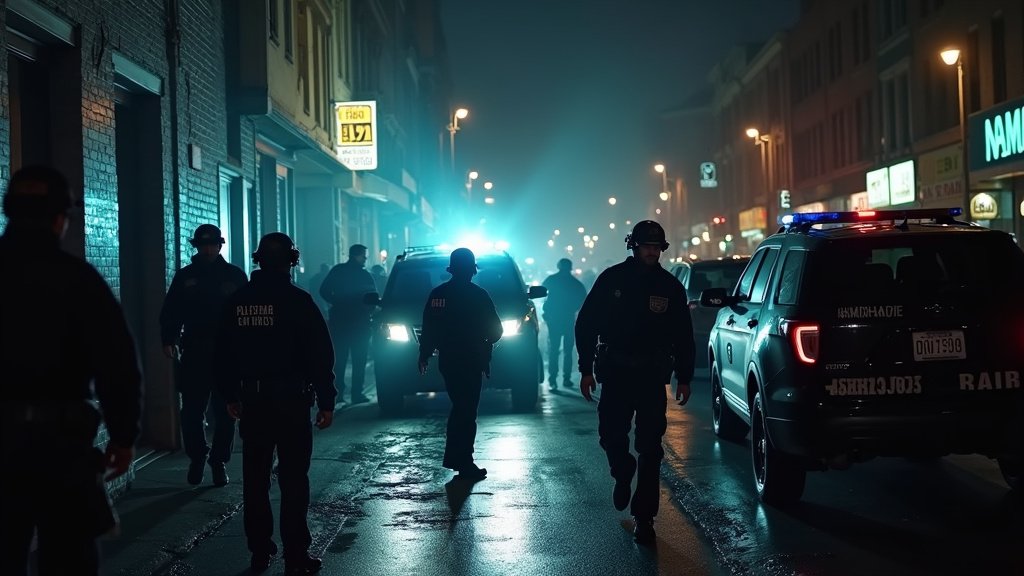In rapidly unfolding US news, the Trump administration is reportedly planning an immigration crackdown in Charlotte, North Carolina, with federal agents potentially deploying as early as this weekend. Simultaneously, the Department of Justice (DOJ) has filed a lawsuit to block new congressional district boundaries in California, a move that could significantly impact the balance of power in the US House of Representatives. These dual developments highlight a week of intense federal action and legal challenges across the country, making for trending news that is drawing national attention.
Federal Immigration Crackdown Looms for Charlotte
Mecklenburg County Sheriff Garry McFadden stated that federal officials confirmed plans for U.S. Customs and Border Protection (CBP) agents to initiate an enforcement operation in Charlotte, North Carolina’s largest city, as soon as Saturday or early next week. McFadden’s office has not been asked to assist with or participate in these federal actions, and specific details about the operation have not been disclosed. The Department of Homeland Security has declined to comment on potential future operations.
This planned deployment marks an expansion of the Trump administration’s immigration enforcement strategy, which has seen federal agents previously deployed to cities like Chicago, Los Angeles, and Washington D.C.. Border Patrol Commander Greg Bovino, who led operations in Chicago, is reportedly among the agents who may be involved in the Charlotte deployment, with agents potentially relocating from Chicago.
Local officials and community groups in Charlotte are preparing for the potential influx of federal agents. City Councilmember-Elect JD Mazuera Arias noted that the purpose of community calls has been to create a mutual aid network and share information about available resources. Charlotte Mayor Vi Lyles has acknowledged the anxiety such deployments can cause, assuring residents that their concerns matter. The Charlotte-Mecklenburg Police Department has clarified that it does not enforce federal immigration laws and is not involved in planning or carrying out these federal operations.
Context of Increased Enforcement
President Donald Trump has consistently defended such operations, framing them as necessary measures to combat crime and advance his deportation agenda. His administration has pursued an aggressive immigration crackdown strategy, with a stated goal of carrying out the largest mass deportation program in history. The Trump administration’s immigration policies have included increased enforcement and a focus on prioritizing deportations from Democratic-run cities. The CBP has been described as one of the world’s largest law enforcement organizations, charged with border security and facilitating lawful travel and trade.
Justice Department Targets California Redistricting
In a separate, high-stakes development, the U.S. Department of Justice has intervened in a lawsuit challenging California’s newly approved congressional district boundaries. The DOJ’s action escalates a legal battle that could determine which party controls the U.S. House of Representatives in the 2026 midterm elections.
The lawsuit, initially filed by California Republicans, targets Proposition 50, a ballot measure overwhelmingly approved by voters last week. This measure allows Democratic lawmakers to temporarily override the state’s independent redistricting commission and draw new congressional maps. The DOJ alleges that California’s new map constitutes an illegal “racial gerrymander” and violates the U.S. Constitution by using race as a proxy to advance political interests, specifically favoring Hispanic voters.
California Attorney General Pam Bondi stated that the redistricting scheme is a “brazen power grab” that “tramples on civil rights and mocks the democratic process,” asserting that Governor Newsom’s attempt to “entrench one-party rule” will not stand.
Legal Battle Over House Control
Governor Gavin Newsom, a prominent Democrat and potential 2028 presidential contender, has strongly criticized the DOJ’s intervention as partisan overreach. His spokesperson, Brandon Richards, stated, “These losers lost at the ballot box and soon they will also lose in court”. Democrats argue that Proposition 50 was necessary to counter Republican-led redistricting efforts in states like Texas, which were purportedly redrawn at President Trump’s urging to create more GOP-leaning districts.
The DOJ’s decision to sue California is a notable intervention in a state-level redistricting dispute, underscoring the national battle over political maps ahead of future elections. The legal fight is ongoing, with the state and federal government set for a significant legal confrontation that could have lasting implications for representation in the US Congress. This news marks a significant moment in national politics, reflecting trending debates over immigration and electoral fairness.






